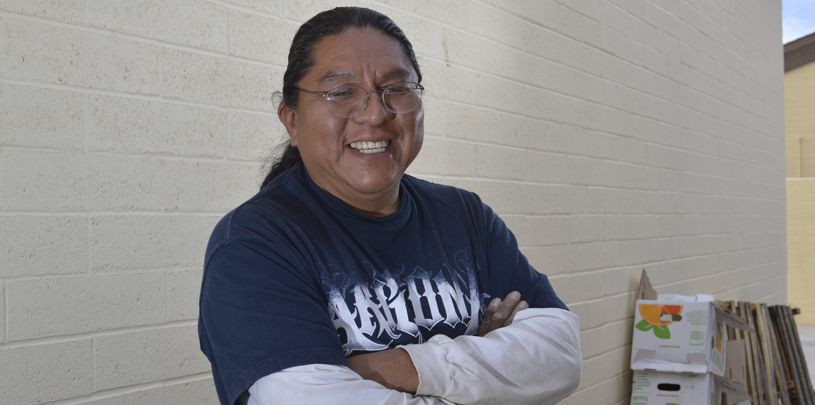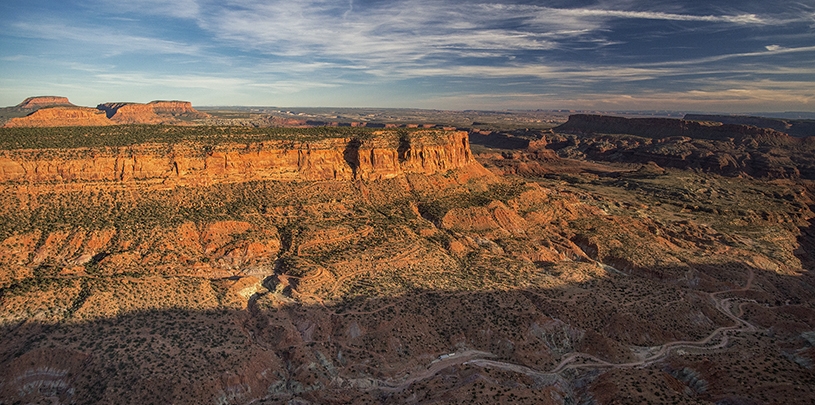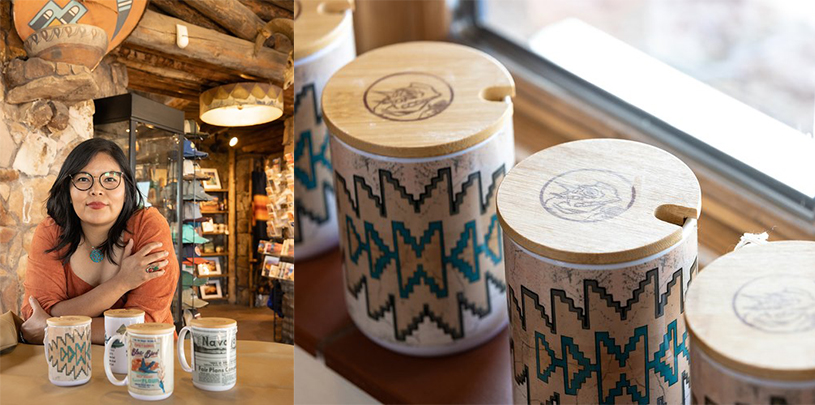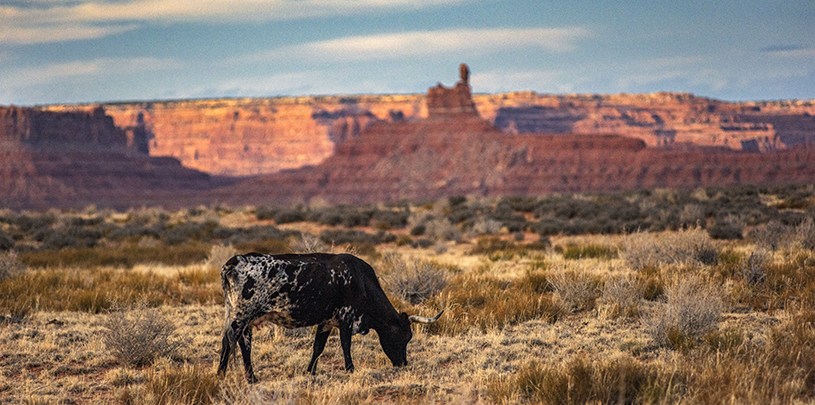by Natasha K. Hale, Manager, Native American Business Incubator Network
While stories about controversial economic plans on tribal lands have been dominating the headlines, Hopi entrepreneur Tyler Tawahongva has been quietly sorting through garbage bags of plastic bottles, baling cardboard boxes collected from the local St. Jude Food Bank, and fishing old microwaves from the dumpster at the local transfer station, disassembling them to harvest the copper they contain.
The 49-year-old father and aspiring recycling pioneer is poised to make a big difference in Tuba City, on the border of the Hopi and Navajo reservations, creating a community-based small business model that employs tribal members, protects the environment, and that he hopes could someday be replicated across the Navajo and Hopi reservations.
After ten years in the small business division of an American Express call center in Phoenix, Tawahongva returned to his native Tuba City, where, working as a journalist and substance abuse mentor, he noticed a big problem: trash.
The reservations, which combined are larger than Ireland, produce an estimated 300 million pounds of waste per year.
Reservation governments have launched small recycling operations, and a few big corporations have moved to town, but most recyclables still end up in the trash. Tribes and businesses spend thousands to truck their waste to landfills in Flagstaff and other off-rez towns. Dumping and illegal trash burning are chronic. But where others see trash, Tawahongva sees opportunity.
The cardboard guy
“I’m the cardboard guy—people know me,” Tawahongva says. In 2014, Tawahongva quit his day job and founded Cloud Nine Recycling. A one-man recycling machine, he hires day laborers when cash flow allows, collecting and transporting over 40,000 pounds of cardboard and paper recycling in 2014 alone. Once or twice a day, he empties the 40-foot recycling containers at the Tuba City waste transfer station (which overflow faster than the reservation government can empty them) and collects materials from businesses and organizations who have jumped on the recycling bandwagon, including the local hospital, food bank, and elementary school. Currently, he picks the recycling up at no charge, saving his clients money and keeping the cardboard out of the trash. He hopes to begin charging a small fee, to keep himself afloat and enable him to hire fellow tribe members to help out.
“If I can get Cloud Nine off the ground, and show that protecting the environment can be profitable, maybe people in Dilkon and Kayenta and elsewhere on the rez will want to do the same thing. I want to be the recycling guy in Dilkon and Kayenta [Navajo Nation]. My long-term plan is to launch a reservation-wide recycling service.”
He’s transformed the dusty lot surrounding his trailer into an impeccably organized junkyard of cardboard, aluminum cans, plastic bottles, and disemboweled electronics which he mines for steel, aluminum, and especially copper wire, which can fetch over two dollars per pound. He then drives 80 miles to Flagstaff, rents a truck, drives back to Tuba City, loads it up, and drives another 220 miles south to recycling centers in Phoenix. With gas and rental expenses eating into his profits, and the cost of cardboard plummeting from over $100 per ton to about $70, he’s been barely making enough to cover his costs, but that could soon change.
Help Cloud Nine Recycling get its own truck >
Growing a green business in the high desert
With the help of mentor Jessica Stago of the Native American Business Incubator Network (NABIN), Tawahongva landed the 2014 Green Business in Indian Country Start-Up Award from Colorado-based NGO Trees, Water, People, which has helped him with start-up operating expenses. NABIN and Trees, Water, People, have assisted him with setting up basic accounting, expense tracking, and data analysis systems. NABIN has also helped Cloud Nine create a new website and register as an LLC, which means it can enter into contracts. Tyler hopes to use a crowdfunding campaign to raise the $5,000 he needs to invest in in his own moving truck. This would allow him to eliminate the cost of renting a truck, be more flexible and responsive to the market—for example, focusing on metals when the cost of cardboard drops, creating greater profitability and keeping more recyclables out of the landfill. He’s found a used 13-foot Uhaul that would do the trick—now it’s just a matter of raising the money.
A Rez Model
In a region with unemployment over 40 percent, Tawahongva hires others to help him collect and sort recyclables when he can. He hopes, once Cloud Nine gets off the ground, to launch similar recycling operations across the reservations.
“It’s a good feeling to keep something out of the landfill. You get pretty dirty doing it, but at the end of the day you can step back and see the mark you’ve made. It’s a good way to make a living.”
Help Cloud Nine Recycling get its own truck >
In the news
- Tyler on NPR’s Fronteras Desk
- Tyler talks about Recycling on the Rez
- Interview with Tyler





